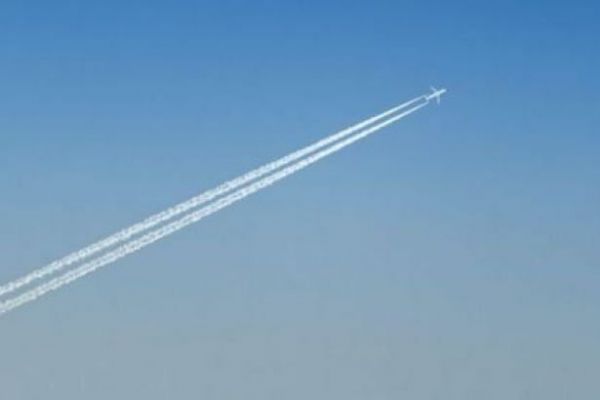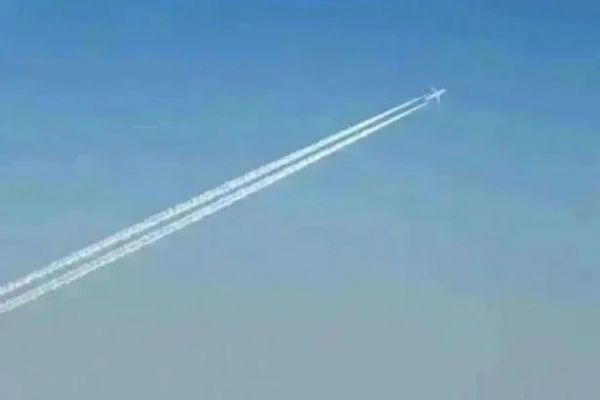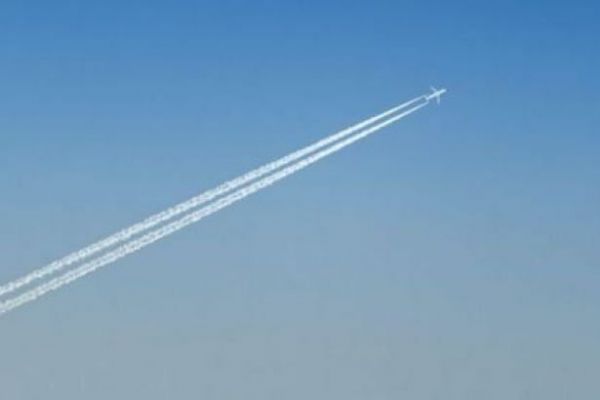Hospitality Ireland presents a round-up of global airline and aviation news.
Etihad Raises $1.2bn In Sustainability-Linked Debt
Etihad Airways said on Wednesday October 13 that it has raised $1.2 billion with a loan linked to environmental, social and governance (ESG) targets in global aviation.
The airline said this was the first sustainability-linked loan in global aviation tied to ESG targets, which relate to reducing carbon emissions and improving corporate governance in addition to advancing female participation.
"Through our Greenliner programme, we are pursuing multiple sustainability-related initiatives at Etihad Airways to improve the environmental footprint of aviation, and green financing is a key part of our strategy," the group's CFO Adam Boukadida said.
Etihad has committed to a target of net zero carbon emissions by 2050.
HSBC and FAB acted as joint ESG structuring banks, joint ESG coordinators, joint bookrunners and mandated lead arrangers. FAB also acted as facility agent.
Last year, Etihad raised $600 million in "transition" sukuk, or Islamic bonds, which are used by companies to switch to more environmentally sustainable operations.
It also raised a €100 million loan in 2019 tied to the United Nations Sustainable Development Goals.
Flying Taxis To Take To The Sky In Mid-2020s, Says UK's Vertical Aerospace
Fed up with traffic jams? Imagine a world where your taxi takes to the skies and lands on top of your office building, recharges and sets off afresh.
That's the vision of Stephen Fitzpatrick, founder and CEO of Britain's Vertical Aerospace, which is set to raise $394 million in a merger with a blank-cheque New York-listed company, and who says his aircraft will be flying by the mid-2020s.
And he's not alone. Some of the world's most high-profile engineers and airlines believe Vertical is onto something with its plan for zero-emission mini-aircraft to almost silently take four passengers through the skies for up to 120 miles (193 kms).
American Airlines, aircraft lessor Avolon, engineers Honeywell and Rolls-Royce, as well as Microsoft’s M12 unit are investing in the merger, which is expected to complete by the end of the year.
Fitzpatrick, who also set up OVO Energy, Britain's no.3 energy retailer, said Vertical flights between London's Heathrow airport and its Canary Wharf financial district will take 15 minutes and cost £50 ($68) per passenger.
That potential is attracting airlines' attention. More than 1,000 VA-X4 aircraft have been pre-ordered by customers. Interest in the zero-emission aircraft comes at a time when aviation companies are under mounting pressure from investors to help decarbonize the sector and boost their environmental, social and governance scores.
"We are going to sign deals. We're finding the appetite and the demand from airlines to be really strong," Fitzpatrick told Reuters.
The biggest challenge for Vertical is certifying its aircraft, which Fitzpatrick said that it is on track to do by the end of 2024, funded by new money from the merger.
Fitzpatrick first had the idea back in 2015 when he sat for hours in 10 lanes of gridlocked traffic in Sao Paulo, Brazil.
Back then, there weren't many competitors, he said, but today analysts estimate there are more than 100 companies working on rival electric Vertical Take-Off and Landing (eVOTL) aircraft.
The VA-X4 is still in construction and will start test flights early next year. Fitzpatrick believes Vertical's partnerships will help it emerge as a winner.
Using battery technology from the car industry, and tried and tested electrical propulsion units and motors, and backed by Honeywell's electronics, Fitzpatrick has "no doubt" that the VA-X4 will fly.
Certification will depend on the European Union Aviation Safety Agency (EASA).
"The process of certifying the aircraft is known. The technologies are new, but the steps we need to go through are relatively similar to other aircraft," said Fitzpatrick, who has recruited senior engineers from both Airbus and Rolls-Royce.
Developing a new mode of transport comes with other challenges such as the infrastructure, but Fitzpatrick is confident.
"We're already in discussions with, for example, Heathrow Airport," he said, pointing out of his office window to potential skyport locations on rooftops.
As for convincing passengers, that's where airlines come in.
"I think the brand association with trusted airlines is really going to help passengers embrace the new technology," he said.
Delta Air CEO Says Mandates Are Not The Only Way To Get People Vaccinated
Delta Air Lines Chief Executive Ed Bastian on Wednesday October 13 defended the company's decision to refrain from mandating coronavirus vaccines for employees despite pressure from the White House, saying mandates are not the only way to get people vaccinated.
"Mandate is only one way to get people vaccinated," Bastian told Reuters in an interview. "It's a very blunt instrument."
Delta is the only major U.S. airline that has still not mandated coronavirus vaccines for employees. Yet, Bastian said staff vaccination rate is expected to increase to 95% in November.
Delta's Shares Fall As Cost Concerns Overshadow Quarterly Performance
Delta Air Lines Inc on Wednesday October 13 warned of a pre-tax loss for the fourth quarter due to a sharp rise in fuel prices, after posting its first quarterly profit without federal aid since the coronavirus pandemic, sending its shares lower.
Oil prices have surged to multi-year highs, threatening the pace of a recovery in the airline industry. Fuel costs alone accounted for nearly 20% of Delta's adjusted operating expenses in the third quarter. The carrier said every 5 cent increase in fuel prices drives up its expense by about $40 million.
In response, Chief Executive Ed Bastian suggested the airline might have to pass along the increased costs to consumers.
"There's nothing we can do to keep fuel prices down," he said in an interview. "What we need to work on is our ability to include that in our pricing."
Historically, the airline industry has been able to increase fares to offset higher fuel costs. But with air travel demand still way below pre-pandemic levels, such moves carry risk.
Delta's shares were down 5.2% at $41.28 in mid-day trade on Wednesday October 13.
The Atlanta-based carrier said its revenue has recovered to two-thirds of 2019 levels on the back of a continued improvement in travel demand.
Bastian said company revenue is estimated to reach 75% of the pre-pandemic levels in November and December, thanks to strong holiday demand and an improvement in international and corporate travel. He expects company revenue to recover to 2019 levels in 2023.
U.S. airlines are buoyed by the Biden administration's decision to reopen transatlantic routes in November, which accounted for up to 17% of 2019 passenger revenues for the big three carriers.
Since the White House announced the decision, Delta said, bookings for the transatlantic flights in November and December have seen more than a six-fold increase.
The carrier also reported a pick-up in business travel over the last month, saying volumes are now at the highest level since the recovery in air travel began.
"As the restrictions are lifted, we're going to see considerable demand," he said. "There's high interest and high demand, not just for consumers, but also for business coming into the U.S."
As a result, Bastian expects 2022 to be a good year for the recovery after the coronavirus pandemic plunged air travel into its worst ever downturn.
The airline has hired more than 8,000 employees since the beginning of 2021 and plans to hire more pilots, flight attendants and mechanics next year to deal with increased demand for air travel.
Delta, the first major U.S. airline to report third-quarter financial results, forecast adjusted fuel prices per gallon of between $2.25 and $2.40 in the current quarter, up from $1.94 in the quarter through September.
Citi analyst Stephen Trent, however, reckons that the pace of demand recovery, especially on the transatlantic corridor, should ease Wall Street's concerns about the fuel cost pressure.
"Moving into 2022, continued revenue recovery seems more relevant than fretting about oil prices," he said.
Adjusted profit for the quarter came in at 30 cents a share, beating analysts' average estimate of 17 cents per share, according to IBES data from Refinitiv.
Southwest Resumes Normal Operations After Recent Disruptions
Southwest Airlines said on Wednesday October 13 that it had resumed normal operations after mass cancellations since Saturday due to unfavorable weather and air traffic issues in Florida.
However, many users faced problems with Southwest Airlines' website on Wednesday October 13, according to user reports on web monitoring group Downdetector. As of 12:42 p.m. ET, 23 problem reports had been submitted.
The company, in response, said it was unaware of any outages affecting Southwest.
The U.S. airline cancelled more than 2,200 flights since Saturday October 9, with about 90 cancellations on Tuesday October 12 out of almost 3,300 flights scheduled.
Southwest Chief Operating Officer Mike Van de Ven had said in a message to employees late on Sunday October 10 that the sudden flight cancellations had caused staff shortages and may lead to a reduction in the number of flights the company can operate in November and December.
Head Of World Airline Group Blasts Heathrow Plan For Higher Fees
Willie Walsh, head of global airlines industry body IATA, called Britain's Heathrow Airport a "greedy monopoly hub" on Wednesday and said its plans to raise airport charges were "outrageous".
Since leaving British Airways parent company IAG last year to run the International Air Transport Association, Walsh has continued to bang the drum against passenger charges at Britain's busiest airport.
Addressing an audience at the Aviation Club in central London, he said Heathrow was trying to place the financial burden of the COVID-19 crisis on its customers by proposing to raise airport charges by 90% to £42 per person.
"This time around, when you see what it is that Heathrow is trying to do, it just jumps off the page," Walsh said.
Heathrow, which last year lost its crown as Europe's busiest hub to Paris, is owned by investors including Spain's Ferrovial , the Qatar Investment Authority and China Investment Corp.
It said airports across Britain and the world were having to increase their prices after the pandemic, and it was a legitimate response to ensure they could keep operating.
"We've proposed a balanced increase of 4% to the average airfare which will allow us to continue targeted investment in the airport's resilience and to maintain basic service standards," Heathrow said in a statement.
Walsh, who has a reputation as a bruiser in dealing with unions and suppliers, said the higher charges would fund bigger dividends for Heathrow shareholders.
He called on Britain's regulator, the Civil Aviation Authority, to protect consumers by pushing back against the airport's "outrageous behaviour".
"The recovery of the UK's travel and tourism industry impacts millions of jobs. They cannot be held hostage to the intransigence of what is effectively a greedy monopoly hub airport," he said.
"I cannot see how almost doubling the charge at Heathrow is in the interest of consumers, particularly as we're trying to recover the industry."
News by Reuters, edited by Hospitality Ireland. Click subscribe to sign up for the Hospitality Ireland print edition.








